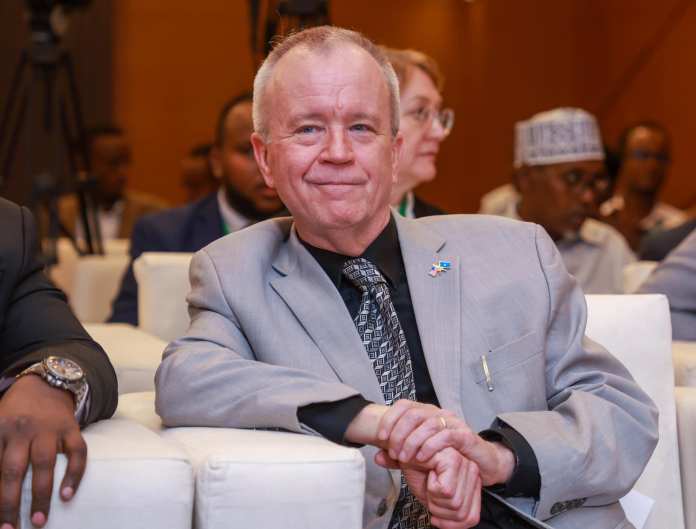WASHINGTON, DC — Former U.S. ambassador to Somalia Larry André has urged Washington to proceed carefully in reviewing Somaliland’s status, warning that unilateral recognition of the breakaway territory could destabilize the Horn of Africa.
His call comes amid renewed pressure from Republican lawmakers, including Senator Ted Cruz, for the United States to recognize Somaliland, which declared independence from Somalia in 1991 but has never been internationally recognized.
In a detailed policy essay, André — who served as U.S. ambassador in Mogadishu between 2022 and 2023 — argued that any U.S. policy review should be deliberate, consultative, and anchored in regional realities.
“Americans will not suffer directly from any further destabilization of the Horn of Africa caused by unilateral and uncoordinated measures,” he wrote. “Rather, the people of this long-suffering region will suffer even more.”
He said Washington’s interests are best served by promoting stability and prosperity across the Horn, where Somali clan dynamics cut across borders with Djibouti, Kenya, and Ethiopia. Moves that upset this balance, he cautioned, could trigger violent reactions.
Three options for U.S. policy
André outlined three possible paths for U.S. policy: maintaining the status quo, opening a diplomatic liaison office in Somaliland’s capital, Hargeisa, or granting full recognition of Somaliland. He rejected the third option as destabilizing and harmful to relations with Somalia and the wider region.
Instead, he backed a middle course: expanding U.S. presence in Hargeisa while urging both Mogadishu and Hargeisa to resume dialogue. He noted that Somalia’s leadership abandoned a tentative cooperation framework reached in 2020 but could be revived.
André emphasized that distortions often cloud debate around Somaliland’s status. He highlighted several facts he said policymakers must weigh:
- Somaliland’s Isaaq clan, which makes up roughly two-thirds of the population, overwhelmingly supports independence, while many non-Isaaq communities favor federal autonomy within Somalia.
- Authorities in Hargeisa have cracked down on pro-reunion areas such as Las Anod, and expressing support for union is illegal in Somaliland.
- Despite relative stability and stronger governance in Somaliland compared to southern Somalia, the territory benefits indirectly from international efforts to contain al-Shabaab.
- Recognition precedents in Africa, such as Eritrea and South Sudan, only came after settlements with the parent state and African Union approval.
“Somaliland status merits open discussion within Somaliland, within Somalia as a whole, and within the region,” André wrote, adding that the guiding principle should be “do no harm.”
The former envoy said Washington should consult regional players — including Kenya, Ethiopia, Djibouti, and the African Union — as well as international partners like Turkey, the EU, and Gulf states before shifting its position.
He suggested creative approaches, citing variable federal models in the UK, UAE, Tanzania, and Canada, as possible inspiration for Somali governance.
Washington reiterates policy
His intervention coincided with a State Department clarification that U.S. policy toward Somalia remains unchanged.
A source familiar with the department’s position told Semafor that Somaliland’s status is subject to periodic review, but the United States continues to back Somalia’s territorial integrity.
The statement followed Senator Cruz’s call for recognition, in which he described Somaliland as a “critical security and diplomatic partner” for Washington and accused Beijing of punishing Hargeisa for its support of Taiwan.
President Donald Trump also stirred speculation when he said his administration was “working on” the Somaliland question in response to a question about relocating Gazans to the territory if recognition were granted.
China dismissed Cruz’s remarks as “baseless attacks,” accusing U.S. politicians of interfering in Somalia’s internal affairs.
Supporters of Somaliland argue that recognition would reward its stability and democratic governance. The region held its sixth election last year, bringing opposition leader Abdirahman Mohamed Abdullahi to power.
But André insisted that rushing into recognition would alienate pro-union Somalilanders, undermine Somalia’s fragile politics, and risk fueling wider instability.
“Historic Somalia’s national revival requires settlement of governance issues, especially Somaliland status, and liberation of the entire national territory from terror group occupation,” he wrote. “These are difficult but achievable goals.”


